As the 22nd Palm Springs International Film Festival gets underway, festival director Darryl Macdonald and director of programming Helen du Toit talk to Jeremy Kay about the fest’s international scope and this year’s programming trends.
The 22nd Palm Springs International Film Festival runs from Jan 6-17. The festival famously tries to show every foreign-language Oscar submission of the year. This year it will be unveiling 204 titles, a new sidebar devoted to African cinema and a juried documentary competition.
The PSIFF has been a cultural mainstay in California now for more than two decades. How has it changed and where did the idea of showcasing international cinema come from?
Macdonald: The festival started 22 years ago and I was director of programming for four years before I left to start The Hamptons [International Film Festival]. That first year we had 12,500 attendees and last year we hit 129,800 and expect to beat that this year. The programming thrust has been the same since Day One. It was conceived as an international festival when American cinema was the name of the game and this was intended to set it apart. It was great to see audiences respond to international films from the outset, particularly because Palm Springs didn’t have cinemas that showed international movies when we started.
Now Palm Springs has possibly more independent screens per capita than any other city. The awards galas were there from the start although we only presented one or two awards to a historical figure like Jimmy Stewart or Frank Sinatra and now it’s evolved into something else entirely.
Who is the audience?
Macdonald: Around 70% of the audiences comes from outside the Coachella Valley and 10% of that number comes from New York State. For many visitors it’s a cultural vacation and midwinter getaway. This is a very savvy festival community because a lot or people who work in Hollywood either have a getaway home here or retire and move out here.
The African Cinema programme showcases 12 new films made in Africa or reflecting contemporary African stories and themes. Selections include Soul Boy, the Kenya-Germany co-production directed by Hawa Essuman under the tutelage of Tom Tykwer, who went to the African continent to mentor film-makers. Where did the impetus for the programme come from?
Du Toit: It started at Cannes with Life Above All and A Screaming Man [both of which are in the programme] and at Toronto we saw The First Grader. Beyond that we found we had quite a few submissions from Africa. I have often found as a programmer that we have underrepresented Africa and it seems to me the subject of Africa was high on everyone’s mind. Vancouver and Rotterdam focused programming on Africa last year so we looked through their selections.
What else is notable about this year’s line-up?
Du Toit: FIPRESCI and New Visions New Voices are very strong this year, and we have revamped our John Schlesinger Award and added a jury because documentaries are always getting stronger, so we felt it was time to give more attention to them. Plus Schlesinger started out in docs and was very passionate about the non-fiction storytelling.
The Talking Pictures series presents as good as insight into the work of awards-worthy talent as one will find anywhere. This year’s on-stage guests will include Colin Firth, Michael Douglas and Javier Bardem.
How have on-stage talent appearances evolved at the festival?
Macdonald: It was different in the early days. We started off doing seminars and masterclasses and that’s covered well enough by film schools and other festivals now, so we decided to focus more on the year’s frontrunners for Oscar consideration and getting the talent on stage because that’s what audiences are interested in.
Tell us about the film-maker retreat, another innovation for 2011. The retreat took place this week from Jan 5-6 at the Annenberg Retreat Center in Sunnylands in Rancho Mirage, on a 200-acre estate owned by the Annenberg Trust, with Little Miss Sunshine and Cold Mountain producer Ron Yerza delivering the keynote speech.
Macdonald: This is the first year. Retreats tend to take place mostly in summertime or fall so we wanted to pick a different time. This retreat is intended as an initial foray into making a difference to international and indigenous cinema. It will have an agenda. We are hoping to work with the film-makers to put together a broad agenda year-by-year; in other words it will take an initial retreat to look at ways of spurring international and indigenous production. The aim was for as many of the film-makers from overseas as possible to attend.
Are there any discernable trends in this year’s overall selection of films?
Du Toit: A lot of individuals are risking themselves trying to make a difference in the world. I Am by Tom Shadyac [Bruce Almighty, Ace Ventura, The Nutty Professor] is a case in point. He suffered post-concussion syndrome after a head injury and realised all the success and money weren’t making him happy, so he went out and interviewed world leaders and asked them the same two questions: what’s wrong with the world and what can we do to make a difference. It’s from the ultimate Hollywood insider whose looking at something that everybody aspired to and saying that’s not it.




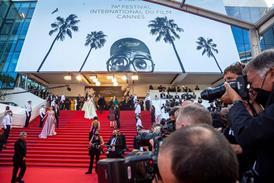
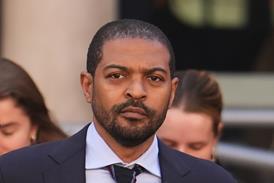
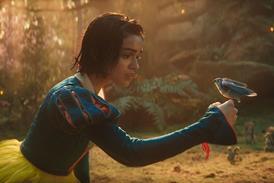
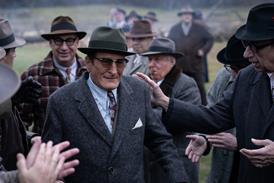



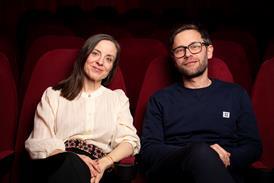










No comments yet